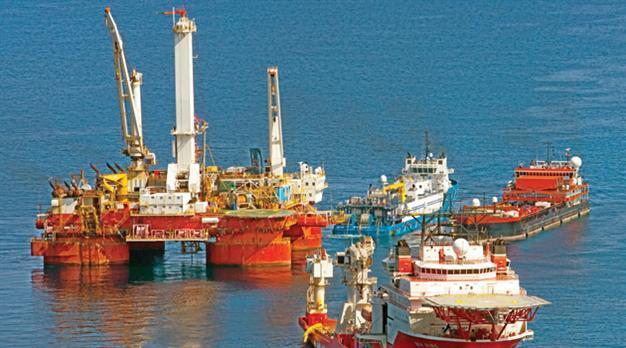BP joins oil giants in posting negative data
ISTANBUL

This file photo shows BP’s MC 252 site in the Gulf of Mexico just before ‘Static Kill’ procedure begins. BP becomes the fourth major oil giant posting negative data. Company photo
BP, one of the largest players in the global oil market, posted a greater-than-expected second quarter loss of $1.4 billion yesterday, becoming the fourth company to announce negative data in less than a week.BP, the latest company to reveal fresh data, said its net loss compared with a net profit of $5.7 billion seen a year earlier and revenue was down 9 percent, at $95 billion. The company also made an additional provision of $847 million for the Gulf of Mexico oil rig disaster and cleanup, taking the total provision to just over $38 billion, Reuters reported.
French Total said on July 27 that its 2012 second-quarter net profit fell by 42 percent to 1.6 billion euros ($1.96 billion). Another global oil giant, Shell, posted $6 billion in second-quarter profits a day earlier, down from $8 billion in the same period a year ago. Spanish Repsol also said its second-quarter net profits fell 45 percent from the same period in 2011, to 274 million euros ($332 million).
Along with operational causes and some other contributing factors, a sharp fall in crude prices has come forth as the main reason for the oil giants’ current pessimistic picture, according to separate company statements regarding quarterly figures.
The average price of benchmark Brent crude oil in the second quarter was $8.75 per barrel, lower on average compared to a year earlier, while production was down 7.4 percent, BP said in a press release yesterday. Even a weaker supply due to the embargo on large oil producer Iran could not raise oil prices as compared with 2011’s highs. However, a drop-off in demand, particularly from the crisis-hit eurozone, seems to have played a large a role. A consensus at last month’s OPEC meeting to keep the collective oil output ceiling unchanged at 30 million barrels per day has so far failed to push prices higher.
However, annual averages, rather than peak points, should be used when evaluating costs, Volkan Ş. Ediger, head of the Energy Systems Engineering department at Istanbul’s Kadir Has University, told the Daily News yesterday.
“Oil prices have been rising since 1998,” despite some fluctuations in given periods, he said. “The cheap energy era is indeed over,” he said, adding that this also goes for coal and natural gas. “Prices will continue to rise during an era of transition away from fossil fuels.”
















